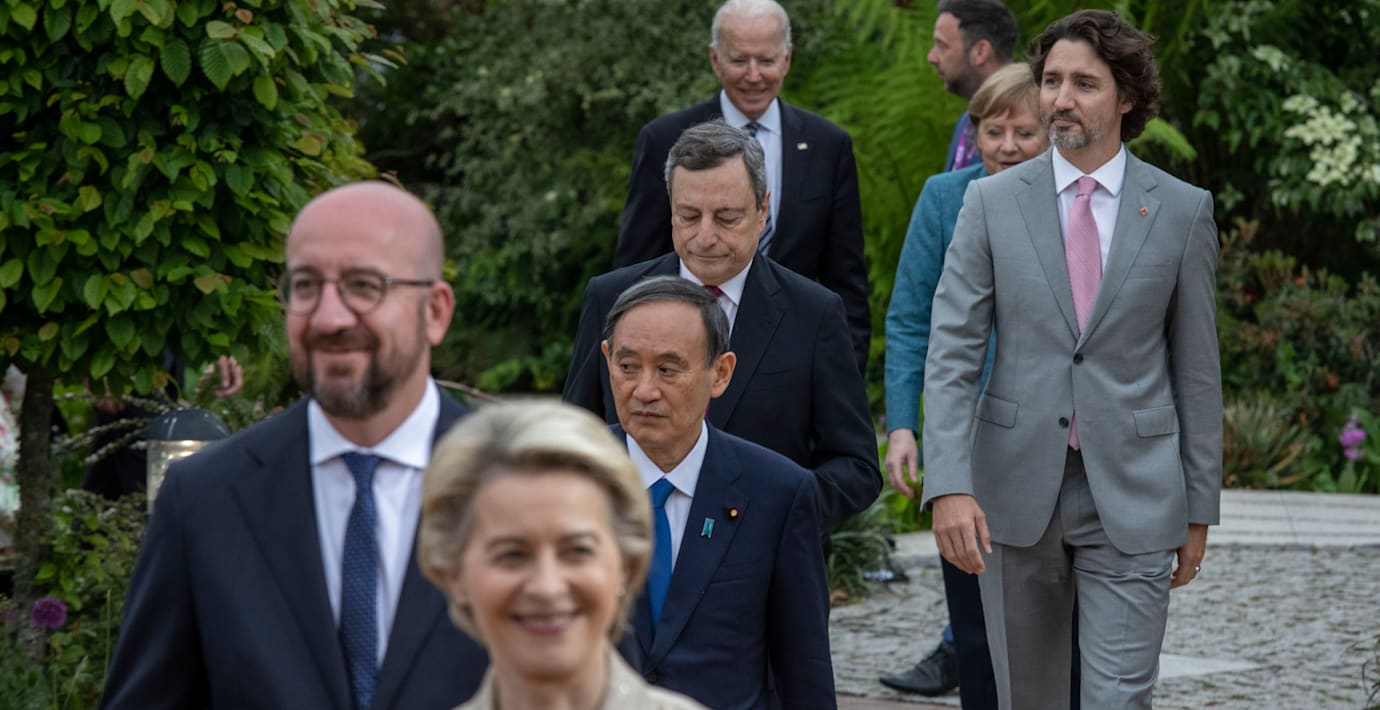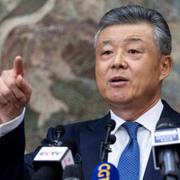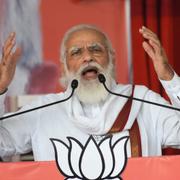
G7-länderna överens om ny infrastrukturplan för att motverka Kinas inflytande
G7-länderna presenterade under lördagen en ny global infrastrukturplan för att hjälpa utvecklingsländer, som är tänkt att utmana Kinas ökande inflytande i världen, skriver AFP.
Planen är tänkt att fungera som en motvikt till det gigantiska kinesiska infrastrukturprojektet ”Ett bälte, en väg”. Dessutom försöker USA sätta press på de andra G7-ledarna att ta till konkreta åtgärder mot Kinas utnyttjande av tvångsarbete, samt inkludera kritik mot Kina i ett gemensamt uttalande efter G7-mötet, säger en källa till Reuters.
– Det här handlar inte bara om att konfrontera eller utmana Kina. Men hittills har vi inte erbjudit ett positivt alternativ som speglar våra värderingar, våra standarder och vårt sätt att göra affärer, säger källan.
”Ett bälte, en väg”
Wikipedia (en)
The Belt and Road Initiative (BRI, or B&R), known in Chinese and formerly in English as One Belt One Road (Chinese: 一带一路) or OBOR for short, is a global infrastructure development strategy adopted by the Chinese government in 2013 to invest in nearly 70 countries and international organizations. It is considered a centerpiece of Chinese Communist Party (CCP) general secretary and Chinese leader Xi Jinping's foreign policy, who originally announced the strategy as the "Silk Road Economic Belt" during an official visit to Kazakhstan in September 2013."Belt" is short for the "Silk Road Economic Belt," referring to the proposed overland routes for road and rail transportation through landlocked Central Asia along the famed historical trade routes of the Western Regions; whereas "road" is short for the "21st Century Maritime Silk Road", referring to the Indo-Pacific sea routes through Southeast Asia to South Asia, the Middle East and Africa. Examples of Belt and Road Initiative infrastructure investments include ports, skyscrapers, railroads, roads, airports, dams, and railroad tunnels.
The initiative was incorporated into the Constitution of China in 2017. The Chinese government calls the initiative "a bid to enhance regional connectivity and embrace a brighter future." The project has a target completion date of 2049, which will coincide with the centennial anniversary of the People's Republic of China (PRC)'s founding. Some observers and skeptics, mainly from non-participant countries, including the United States, interpret it as a plan for a sinocentric international trade network. In response the United States, Japan and Australia had formed a counter initiative, the Blue Dot Network in 2019. Australia announced on 21 April 2021 via Foreign Minister Marise Payne that Australia would be pulling out of the "Belt and Road" initiative completely.
Omni är politiskt obundna och oberoende. Vi strävar efter att ge fler perspektiv på nyheterna. Har du frågor eller synpunkter kring vår rapportering? Kontakta redaktionen



